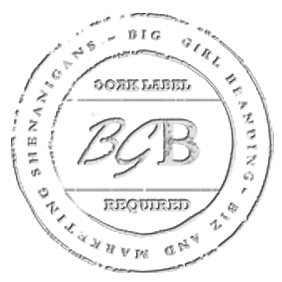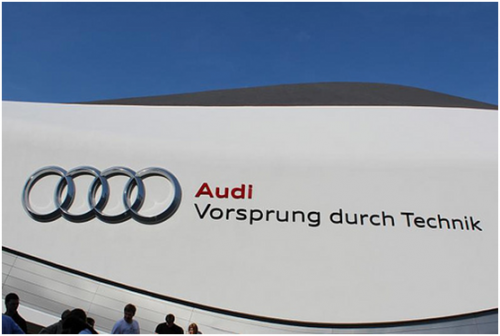This is a guest post courtesy of Sam Wright.
This is a subject I myself hadn’t really thought of before, so I hope you find the information enlightening.
Perhaps it will even spark some new and creative ideas in your own branding endeavors. Happy reading!
There are many different facets brands use to reinforce their identity in a crowded market. One of the strongest is also one of the simplest – their place of birth.
Here are a few examples of firms that have used their nationality to their advantage.
Lindt & Sprüngli
In 2012, Switzerland was voted as the as the global leader in the Country Brand Index, knocking Canada off the spot it had previously held for two years.
At the time Chris Nurko, chairman of FutureBrand, the company behind the study, said that:
“Although branding is a modern term – born from advertising and marketing in the 20th century – a country’s brand is closely tied to the full spectrum of its political, cultural and commercial history”.
For Switzerland these ties are stronger than most. For decades, the country has used a board to protect the ‘Made in Switzerland’ label and the iconic Swiss flag.
While this quality control has slipped on occasion in recent years, its impact still translates into sales. Last year a study by researchers at St Gallen University showed that Swiss made label on a product can generate up to 20% more profit.
Yet while Switzerland may have bigger companies – Nestlé and Rolex for example – none have focused as heavily on their inherent Swissness as Lindt.
From its branding as a ‘master Swiss chocolatier’ to its hiring of national icon Roger Federer as an ambassador, the firm has consistently built upon the country’s reputation for luxury and quality.
Audi
For more than 40 years Audi has used the ‘Vorsprung durch Technik’ tagline.
After being introduced in Germany in 1971, the phrase was shunted over to the UK in 1983 after falling out of use in its homeland – a move that transformed the British advertising industry in the process.
At first, the use of the slogan – which means ‘advancement through technology’ – seemed a risky step.
The UK’s perception of Germany was still wrapped up in the conflict of the Second World War, however hard it tried to hide it.
Yet Germany, after its own period struggling with its national identity, was a country on the rise.
This simple three-word phrase tapped into the new spirit of precision, quality and reliability that it was projecting overseas.
John Hegarty of BBH, the agency behind the campaign, in an interview last year said:
“I had no idea that it would become that popular. It says everything and says nothing. That’s often the brilliance of a thought, that people put their own meaning into it.”
“It was the first time certainly that a foreign phrase captured the public’s imagination in that way,” Hegarty recalls. “There was a history. There was the possibility of rubbing people up the wrong way, but it’s amazing how it took off and how it became a part of British culture.”
Matsui
Until recently, Japan was the leading light in the world of technology and consumer electronics, with firms such as Sony, Toshiba and Canon trading on the perception of a country brimming with innovation and expertise.
In the 1980s – a period when attitudes to technology veered from excitement to fears that machines would replace workers and that robots would take over the earth – this was particularly apparent.
So much so, in fact, that when a new brand named Matsui hit the shelves in the UK, complete with a rising sun logo and the strapline ‘Japanese Technology Made Perfect’, barely an eyebrow was raised.
However, none of Matsui’s products had ever passed through the country’s borders. Instead the name was a ruse by British retailer Currys to capitalise on Japan’s reputation for electronics.
Matters were further complicated by the existence of several other Matsuis, including a Japanese construction company, an IT security firm, which now appears to have folded, and a manufacturer of casino chips and theft-prevention devices.
Plenty were taken in, but not enough to prevent a lengthy court case that ruled that while the company could keep its name, it must drop the misleading slogan in order to protect consumers.
Yet even more damaging were the protests of World War II veterans incensed over its inadvertent association with Iwane Matsui, the Japanese general behind the Nanking Massacre – a reminder that, in branding terms, using nationality as a shortcut to authenticity is bound to fall flat.
Times may have changed over the past few decades –the rise of the web means that worries have moved on to a host of data and security issues for example – yet there is still an important lesson to be learned for your business.
All three examples show that understanding the emotional nature of nationality is key, albeit in very different ways.
Lindt understood how Switzerland’s history invokes craft and excellence, while Audi took a different route altogether and captured Germany’s emerging new identity.
Matsui’s attempt may have been shameless piggybacking, but its downfall was in underestimating how strongly people feel about their nationality. Make sure you don’t make the same mistake.
Over to You
Have you considered using your nationality to strengthen your brand? What are some ways you’d go about doing it? Feel free to share your thoughts in the comments below.




